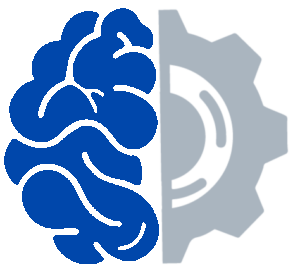Bookshelf
Big Picture
- The Information: A History, A Theory, A Flood, by James Gleick
We exist in a built world. Cultural context is intimately shaped by technology, and great changes reshape the mind. Movement from oral history to written changed how people think about memory and permanence. The railroad provoked the time-zone system, changing the clock from a local measurement of time to something universal.
- Debt: The First 5,000 Years, by David Graeber
Society is mutually-held debt. Our conceptions of morality are linked to mercantile exchange. We are socialists with our friends and capitalists with our landlords.
- The Black Swan: The Impact of the Highly Improbable, by Nicholas Nassim Taleb
People are bad at statistical thinking. Low-probability events are still likely (near guaranteed over a long enough timeframe) and can be the most significant, but are frequently not planned for, as they’re unlikely to happen today.
It is critical to realize when an underlying distribution is exponential instead of normal.
- Dirty Rotten Strategies: How We Trick Ourselves and Others into Solving the Wrong Problems Precisely, by Ian Mitroff and Abraham Silvers
How you define a problem determines how you solve it. The more complicated it is, the more carefully it should be taken in defining it.
Psychology
Humans are first-and-foremost, tool users. We shape our tools and our tools shape us.
The most widespread and powerful tools are frequently overlooked.
- Thinking, Fast and Slow, by Daniel Kahneman
95 – 99% of our daily life is automatic. We divide our cognition between System 1: reflexive, intuitive, and imprecise, and System 2, conscious, thoughtful, and limited.
- Influence: The Psychology of Persuasion, by Robert Cialdini
Interaction is driven by social scripts that we can depend on, even when they make no sense, and we feel akward when they don’t match the situation. Some people weaponize this to keep you from telling them no.
- Snoop: What Your Stuff Says About You, by Sam Gosling
Humans are creatures of habit, and you can learn from the marks they leave behind.
People shape their spaces for two primary reasons: to present themselves to others and to provide comfort to themselves. It is important to distinguish between the two. Distinguishing between the two identifies the difference between the person they wish to be seen as and their habits.
Engineering & Design
- An Introduction to Human Factors Engineering, by Christoper Wickens, John Lee, Yili Liu, and Sallie Gordon-Becker
- Engineering Psychology and Human Performance, by Wickens and Hollands
- The Design of Everyday Things, by Don Norman
Usable designs are driven by affordances, visibility, mapping, and feedback. Good designs clearly communicate their uses, prevent error, and fail gracefully.
Statistics & Data Communication
- The Visual Display of Quantitative Information, by Edward Tufte
- The Grammar of Graphics, by Leland Wilkinson
- Statistics in a Nutshell, by Sarah Boslaugh and Paul Watters

